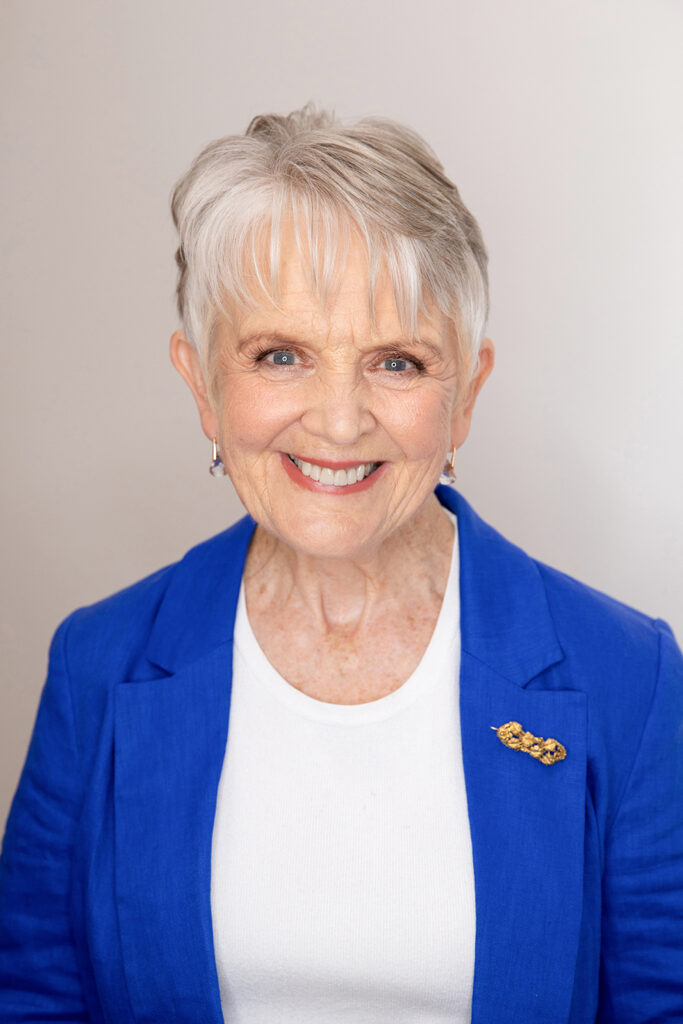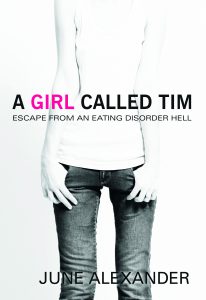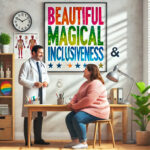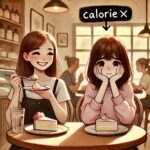Books
Authored, co-authored and edited by Dr June Alexander
Here are some of the books that June has authored, co-authored and edited.
Memoir
A memoir is a historical story or biography written from personal memories or special sources such as diaries or journals. It’s a book about your life, the lessons learned, and key moments that shaped who you are. My memoir, A Girl Called Tim, is about my experience with an eating disorder.
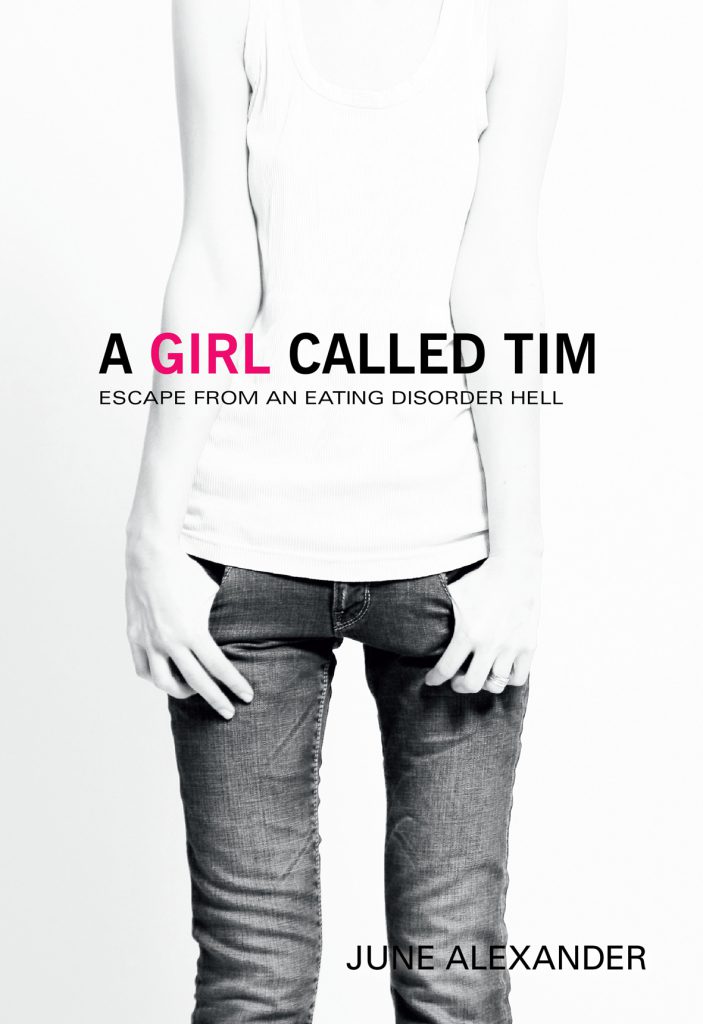
A Girl Called Tim
I was 11 years old, in Grade Six at primary school, when I developed a mental illness called anorexia nervosa. It starved my body and I became emaciated. Eventually I gained weight and everyone, including me, thought I was well again. But anorexia hid inside my brain, and continued to sabotage my mental and emotional health. My memoir is written almost entirely from my diaries, which I began writing at the age of 12. The process of diary writing was important for, although not aware of this at the time, it helped me stay alive. Many years on, when I..
Eating Disorders
Eating Disorders are a very serious illness. The books here will help you understand the illness, and the challenges in recovery. Several titles detail evidence-based treatments available for anorexia nervosa, bulimia nervosa and binge eating disorder.
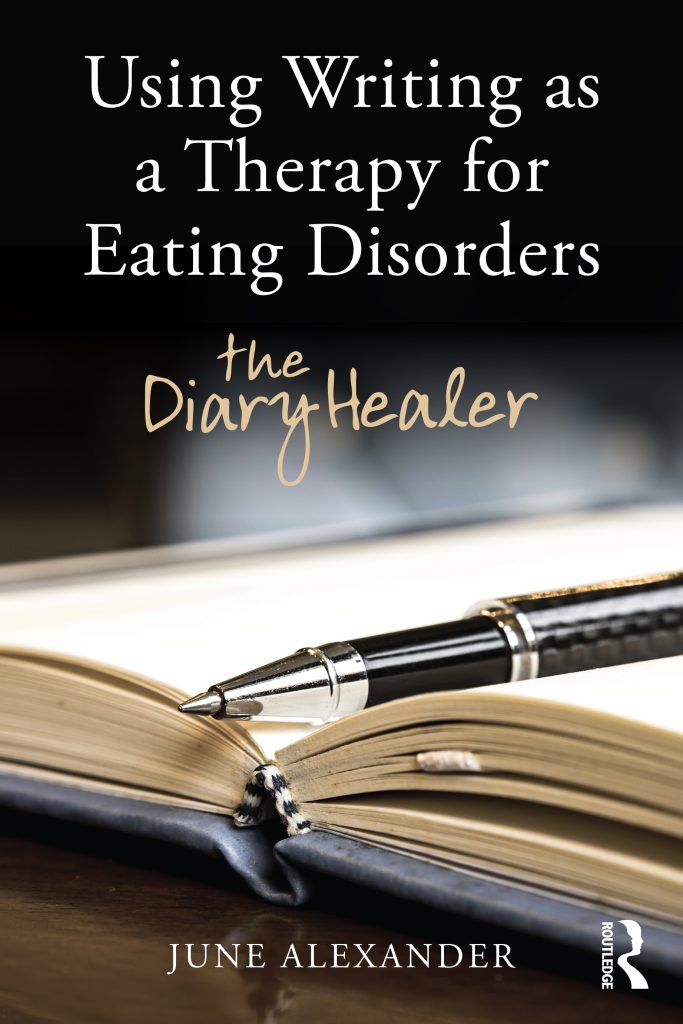
Using Writing as a Therapy for Eating Disorders: The Diary Healer
Above all, the catalyst for this book was a desire to explore and reveal through the unsolicited diaries of patients, the potential of diary writing as a therapeutic tool in self-renewal and healing. The story behind Using Writing as a Therapy for Eating Disorders: The Diary Healer began in 1962, when I developed an eating disorder and began to keep a diary. I was 11 years old and did not understand why I was too afraid to eat, or why I could not sit still. My frustrated mother, unaware that my head was filled with bossy thoughts and compelling fear,..
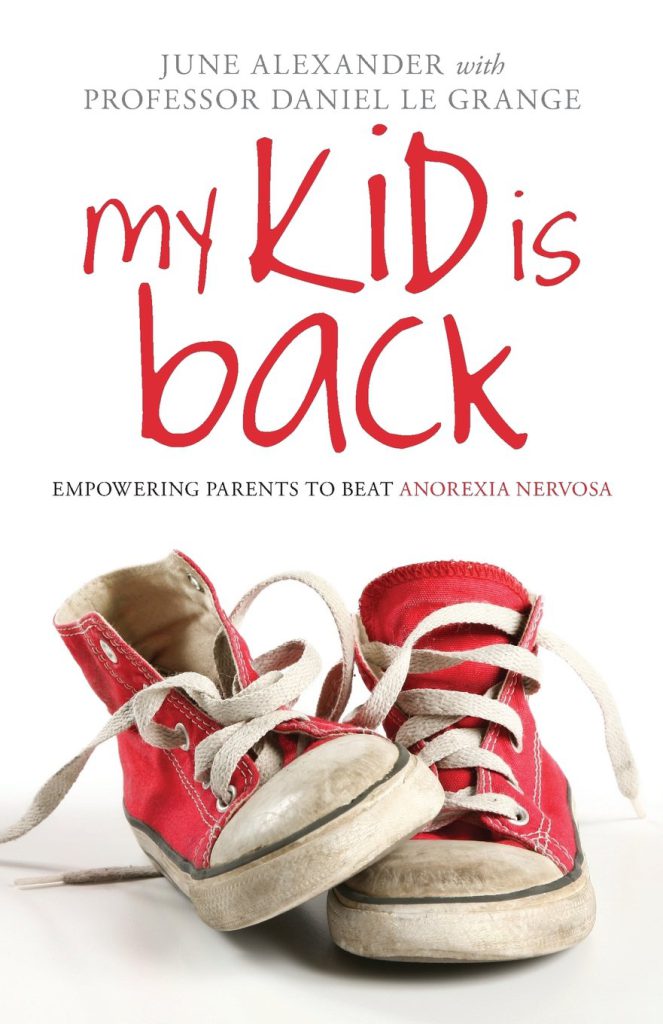
My Kid is Back – Empowering Parents to Beat Anorexia Nervosa.
June is travelling the world to raise raise awareness of the importance of family involvement and support in the treatment of eating disorders. This picture was taken at the Academy for Eating Disorders’ annual conference in Salzburg in 2010. My Kid is Back explains how family-based treatment can greatly reduce the severity of anorexia nervosa in children and adolescents, allowing the sufferer to return to normal eating patterns, and their families to return to normal family life. In this book ten families share their experiences of living with anorexia. Parents describe their frustrations in seeking help for their child and..
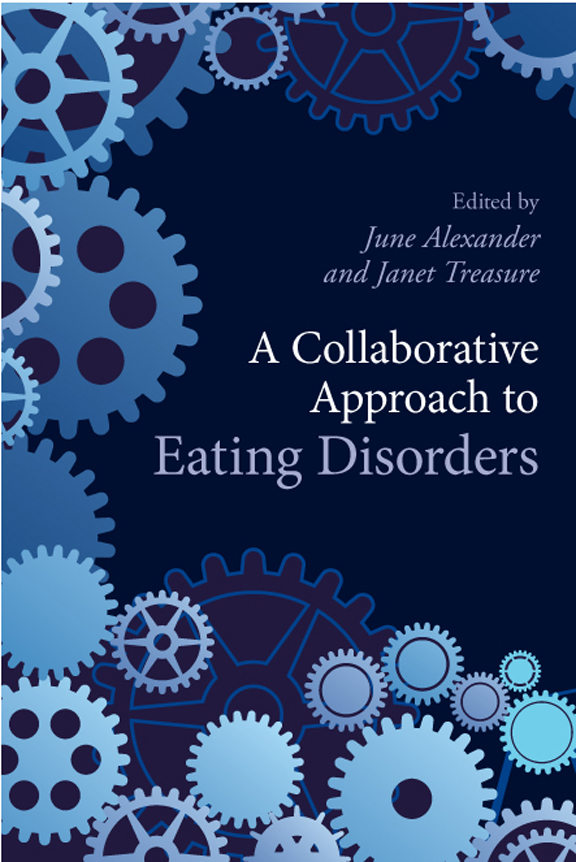
A Collaborative Approach to Eating Disorders
The Centre for Eating and Dieting Disorders, (CEDD) Sydney, offers this recommendation: A Collaborative Approach to Eating Disorders by June Alexander & Janet Treasure draws on up-to-date evidence based research as well as case studies and clinical vignettes to illustrate the seriousness of eating disorders and the impact on both the sufferer and their loved ones. With contributions from key international figures in the field, this book is a valuable resource for students and mental health professionals including family doctors, clinicians, nurses, family therapists, dieticians and social workers. While many aspects of eating disorders remain a mystery, there is growing evidence..
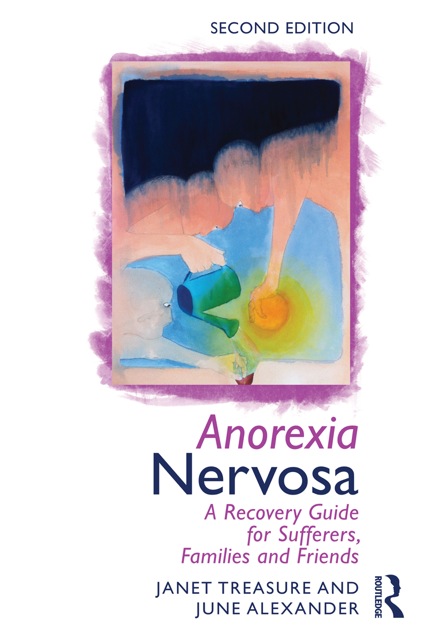
Anorexia Nervosa – A Recovery Guide for Sufferers, Families and Friends
The highly respected and widely known Anorexia Nervosa: A Survival Guide for Sufferers and Friends was written in 1997. This long-awaited new edition builds on the work of the first book, providing essential new and updated research outcomes on anorexia nervosa. Anorexia Nervosa: A Recovery Guide for Sufferers, Families and Friends, offers a unique insight and guidance into the recovery process for those who suffer from an eating disorder as well as advice and information for their loved ones. Written collaboratively by both an expert in the field and someone with personal experience of eating disorders, this book offers exceptional..
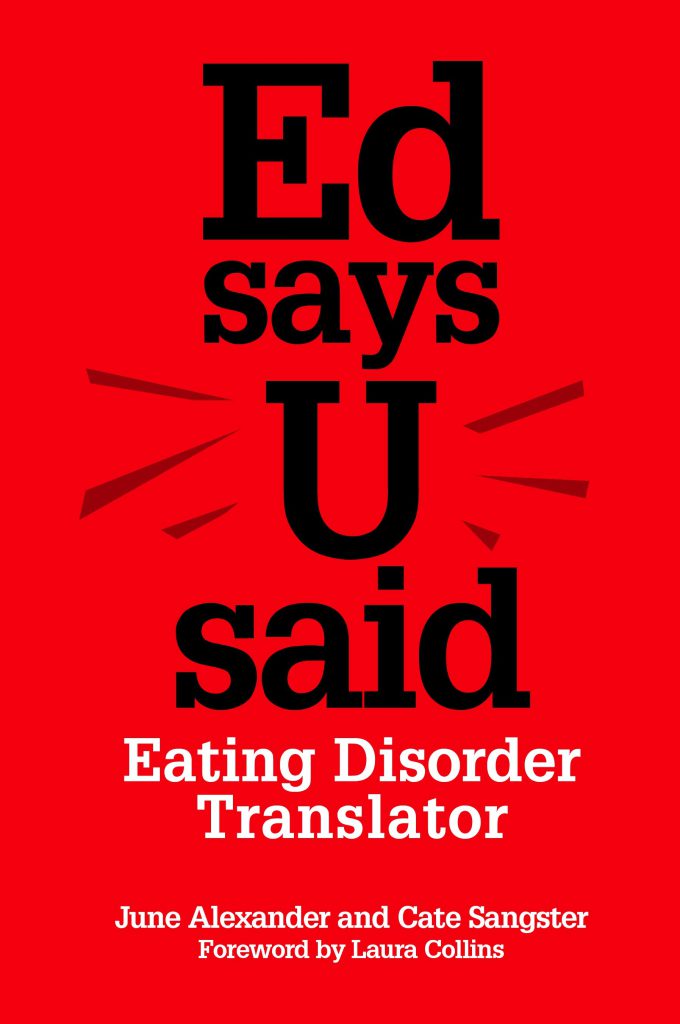
Ed says U said – Eating Disorder Translator
Ed says U said unravels the complexities of eating disorders (referred to as ‘ED’) into layman’s language that you can understand. Using avatars and the Twitter-like title and format, this book pitches to a social media-conscious-audience. ‘ED’ is portrayed as an invisible bully that develops in the mind. Its agenda is to befriend, isolate and destroy by manipulating and sabotaging thoughts and behaviours. The biologically based mental illness feeds on misinterpretation. The mind-takeover is so complete that the sufferer often doesn’t understand they are ill and family, friends, colleagues and health professionals have no idea how to respond.
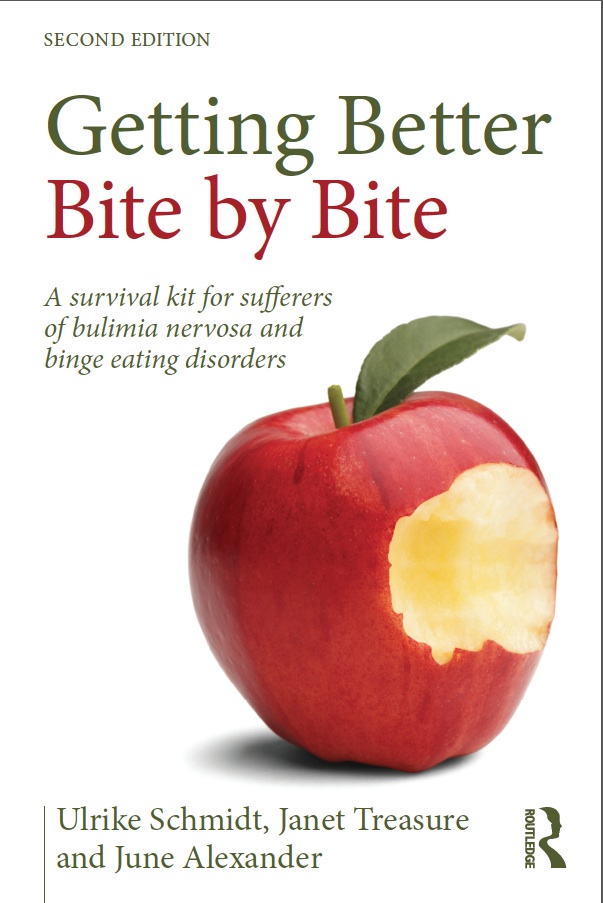
Getting Better Bite by Bite – A survival kit for sufferers of bulimia nervosa and binge eating disorders
Getting Better Bite by Bite is a survival kit for sufferers of bulimia nervosa and binge eating disorders. Every page of this self-help book carries the message that recovery from bulimia nervosa and binge eating disorders is possible, at every age. Getting Better Bite by Bite does not pretend that recovery from an eating disorder is easy. Instead it arms you with skills and knowledge to make your recovery journey as smooth and rewarding as possible. Nothing Glamorous or Desirable There is nothing glamorous or desirable about bulimia or binge eating. Getting Better Bite by Bite portrays what life is..
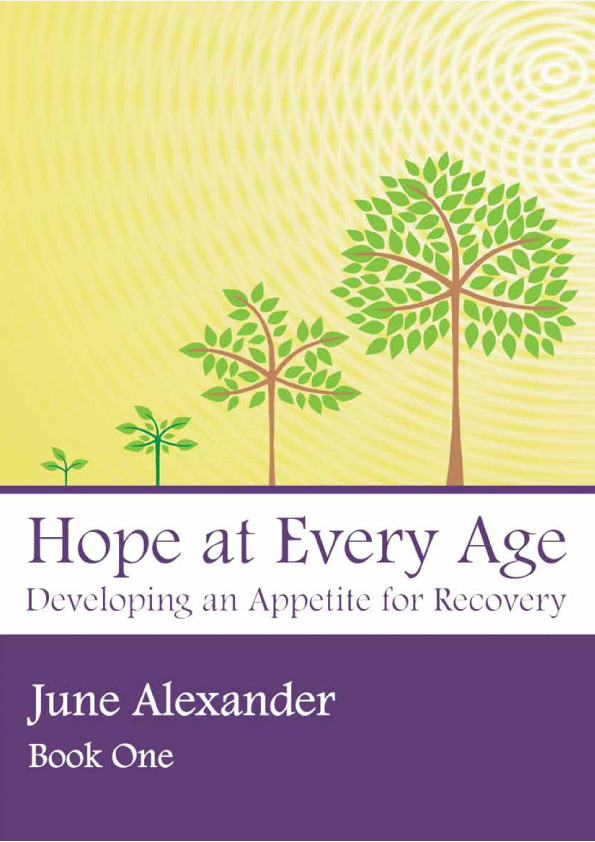
Hope at Every Age – Developing an Appetite for Recovery
I am in Sixth Grade at school and I am developing Anorexia Nervosa. My parents are worried sick about me. They think I won’t make it to my 12th birthday. No one understands me. I don’t understand, either. I only know that I have to lose weight. I am too scared to eat. Food makes me anxious. Powerful thoughts drive me to eat less and exercise more every day. It is like something has taken over my brain, telling me what to do, and punishing me if I disobey. If in reading this you recognize yourself or someone you love –..
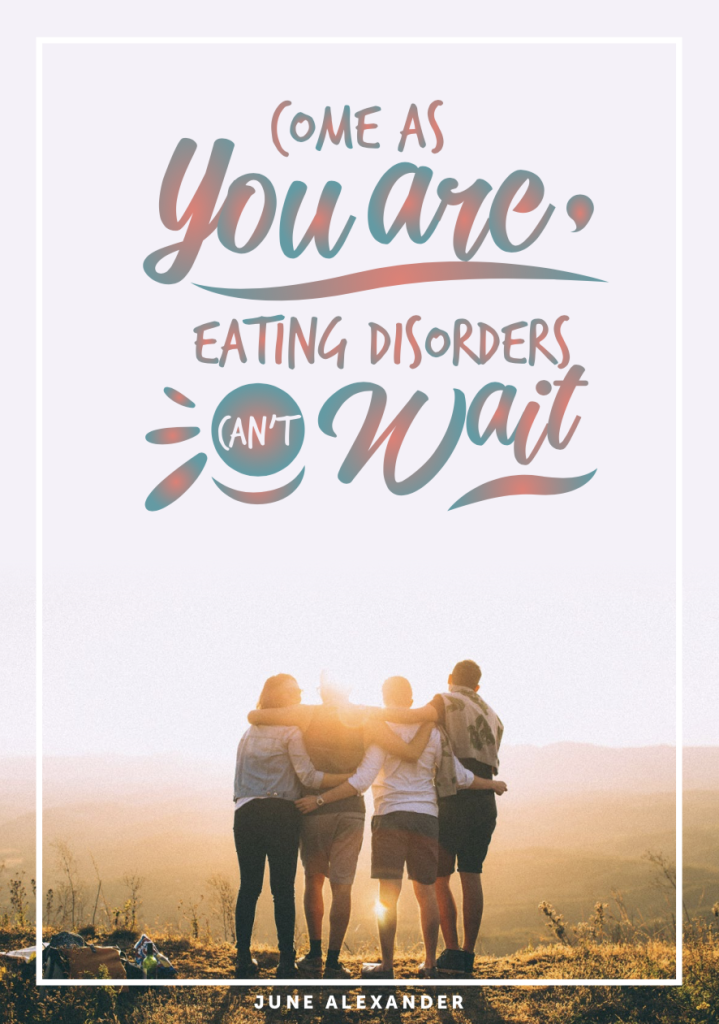
Come As You Are: Eating Disorders Can’t Wait
Welcome to this collection of stories selected to celebrate and promote eating disorder advocacy and awareness. The compelling title of this book, Come as you are, eating disorders can’t wait, comes from the 2019 themes of two awareness campaigns – that of the National Eating Disorders Association (NEDA) in the United States, and World Eating Disorders Day. The stories have been chosen to connect with these themes, and to encourage you to share your story, in a safe and supportive environment, too.
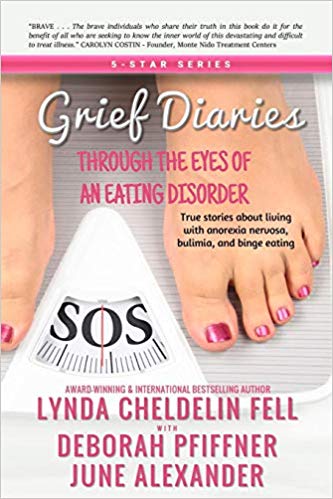
Grief Diaries: Through the Eyes of an Eating Disorder
Boldly written with graphic honesty, Grief Diaries: Through the Eyes of an Eating Disorder features the stories of 13 women who struggled from childhood into adulthood with anorexia nervosa, bulimia, and binge eating disorder. Revealing the desperate secrets of their devastating illness for the first time, the women expose the painful truths they kept hidden for years, and how they found the courage and determination to overcome the destructive force of a powerful disorder before it claimed their very lives.
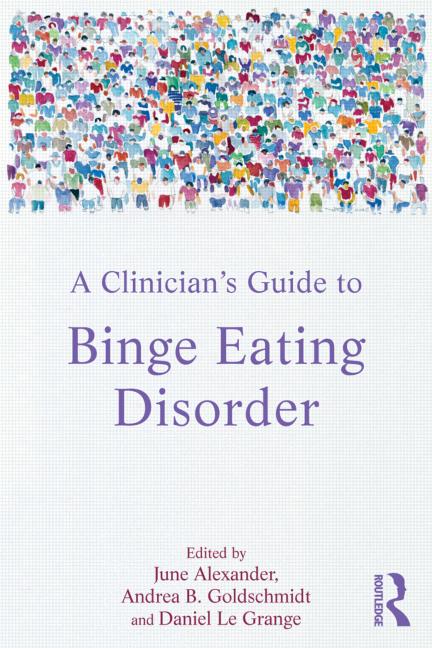
A Clinician’s Guide to Binge Eating Disorder
Advocacy is engendering the collective will to change “Ultimately, what is true for the individual is true for the community: motivation is essential for change. Unfortunately, change is expensive, consuming time, energy and money … … Effective motivation requires engagement and, while many strides have been made toward community engagement, much greater unity and broader involvement is possible. It is our hope that this volume represents a step in the direction of engagement of clinicians, researchers, patients, carers, policy makers, and members of the community in a joint endeavor to eliminate BED. To the degree that it promotes conversation among..
Community & Social History Books
Social history helps us to visualise what life was like in another time for a community or group. Social history records the lived experience of the past. First-person accounts help to preserve everyday life for succeeding generations to study, identify with, and enjoy. Collaborating with community groups in writing and preserving record their individual stories in book form is a rewarding experience for all involved.
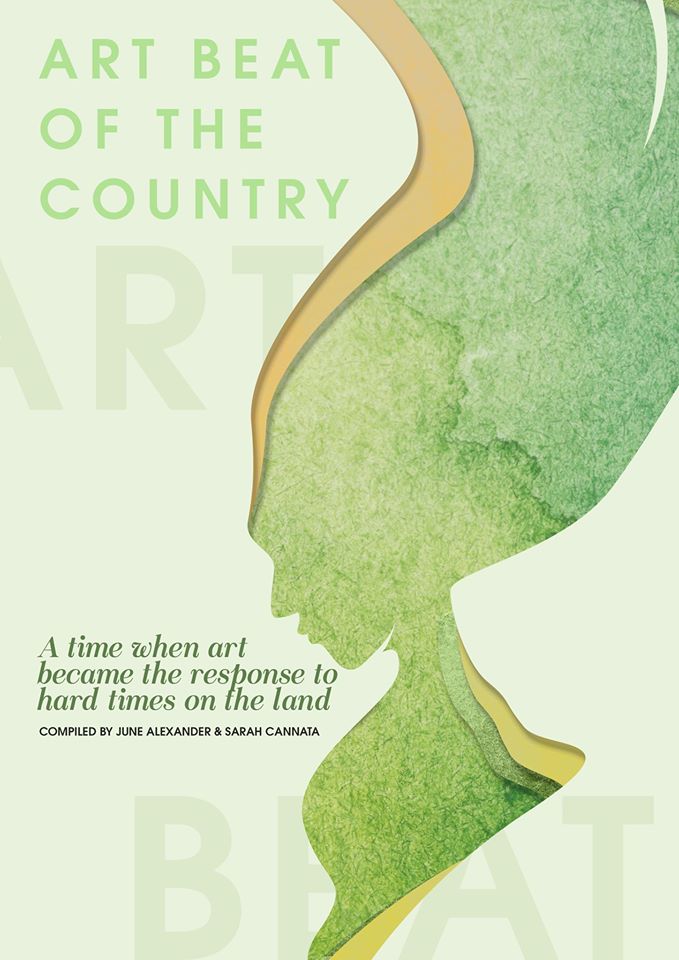
Community History Books
Writing is a valuable form of communication and expression for everyone. When natural disasters, such as drought, bushfires, and floods, occur, storytelling is one way that residents in affected communities can process and come to terms with their changed circumstances, and free themselves to move forward with their lives. I feel honoured to work with community groups in documenting first-person stories. For example, I Remember When … a government-funded recovery project comprising a series of three writing workshops, is far more than an exercise in therapy writing. Books created in this way become a testament to the wealth of wisdom,..
